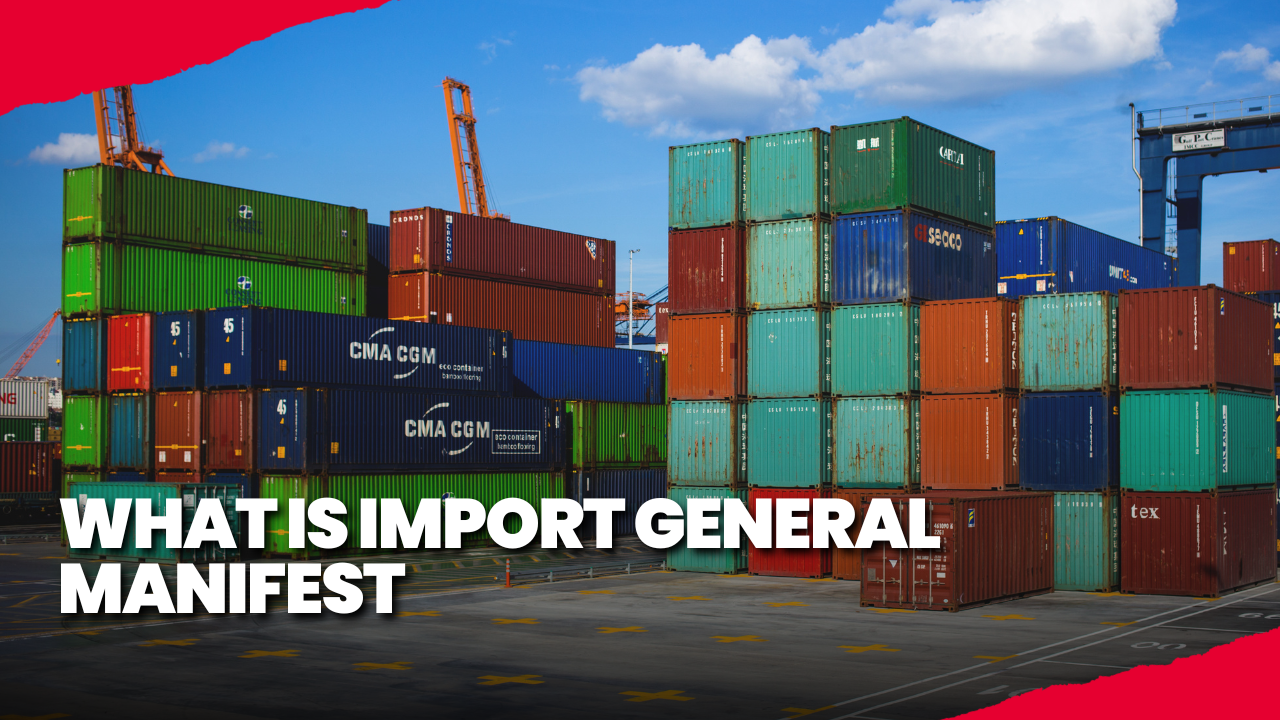
Are you in the business of exporting? If so, you must understand the Import General Manifest (IGM). Despite its more common relationship with imports, the IGM is also a fundamental component of the export procedure. Incorrect or missing paperwork causes customs delays for around 30% of all international shipments. Both importers and exporters may feel the effects of this since items delayed at their destination can damage reputations and disappoint customers.
Example: You’ve just sent your premium artisanal coffee beans to a highly competitive market overseas. It’s time to connect with eager buyers worldwide; you’ve spent much time cultivating and perfecting your goods.
There is one possible problem: if the Import General Manifest is missing or not filled out correctly, your shipment could be held up at the border of the country that is importing it.
Without IGM, customs clearance, satisfied customers, and maybe even repeat business are all out of the question.
Make sure your shipments fulfill all documentation requirements for successful international trade by understanding how the IGM impacts exports and using this guidance.
What is the Import General Manifest?
The Import General Manifest is a document that contains detailed information on the cargo being delivered aboard a vessel or aircraft entering a country. While the carrier is technically the one who files the IGM upon arrival, exporters feel its effects directly as customs officers use it to compare the inbound package to the export and import paperwork, making sure everything is in order.
You can think of the IGM as a document that your exported goods need to pass customs. It lets customs officials inspect your shipment, which speeds up the process of entering the country of import. Exporters can keep delivery dates and customer satisfaction on track with an organized IGM.
Importance of the IGM in Exports
The IGM plays a significant role in:
Assuring Conformity
The IGM is used by customs officials to verify that the cargo matches other export paperwork, such
- The commercial invoice
- Packing list
- Bill of lading
The export process is susceptible to delays caused by discrepancies.
Preventing Delays and Penalties
Failure to file accurate or timely IGMs can result in penalties that affect the whole supply chain, delaying the delivery of goods.
Improving Risk Management
Customs utilizes the IGM for risk assessment, which aids in the quick clearance of compliant goods and causes exporters to experience as little disruption as possible.
Content of the Import General Manifest
In order to avoid any problems with customs clearance, exporters must be familiar with the contents of the IGM. Important components of an IGM consist of,
- Name, registration, trip number, and arrival time of the vessel or aircraft are all components of transport details.
- Importer’s and exporter’s names and addresses.
- Product description, weight, quantity, packaging type, and HSN codes for classification.
- Critical for cross-verifying cargo information, shipping documents provide links to the bill of lading or airway bill.
- Numbers, sizes, and seal numbers of containers, if applicable.
- Details on the ship’s origin and destination, particularly its port of discharge, ultimate destination, and country of origin, if available.
- Accurate and complete IGM details speed up customs procedures, helping exporters get their goods to market faster.
Also Read This: HSN Code For Freight Charges: A Complete Guide
Why does it matter for exporters who file the IGM?
The shipping company or airline is the one who must file the IGM. On the other hand, exporters are helpful in an indirect manner by giving reliable shipment details.
The entire export procedure is susceptible to customs delays caused by errors in the IGM due to misunderstandings or inaccurate data provided to carriers.
Exporters can file the IGM correctly by working with carriers and understanding Incoterms export obligations.
Avoid Common IGM Errors
Making sure the IGM is accurate is a must for exporters. Some typical errors are as listed below.
- The use of imprecise or missing details in the description of a shipment could cause customs inspections to be initiated.
- As a result of erroneous HS code classification, customs delays, and inaccurate duty assessments can occur.
- Avoid mistakes and inconsistencies by double-checking all shipping paperwork.
- Avoiding last-minute mistakes requires timely and accurate information sharing with the carrier.
How IGM and EGM Are Related
It should be mentioned that the Export General Manifest (EGM) is filed when products leave the country of the exporter, in contrast to the Import General Manifest (IGM), which is filed for imports.
While the EGM records shipments going out, the IGM records shipments coming in at the destination. When used in combination, they offer a complete picture of the shipment’s path, guaranteeing that all export and import requirements are met.
Wrapping It Up
If you are an exporter, you must understand the Import General Manifest since it directly affects the effectiveness and efficiency of your overseas shipments. You can avoid costly delays and improve trade operations by ensuring correct and timely documentation. Work with your carrier and stay current on customs procedures to enable easy export clearance and worldwide expansion.
FAQs
Carriers file the Import General Manifest (IGM) to list cargo entering a country. It is necessary for customs clearance and verifies that the shipment meets export and import requirements.
Exports depend on the IGM because customs authorities use it to check shipment details. IGM mistakes can delay, penalize, and disrupt supply networks.
Airline or shipping line carriers file the IGM, but exporters must give proper cargo details to avoid errors. IGM errors can delay customs, affecting delivery and customer satisfaction.
Also Checkout Our YouTube Channel: @limeinstituteofexportimport






